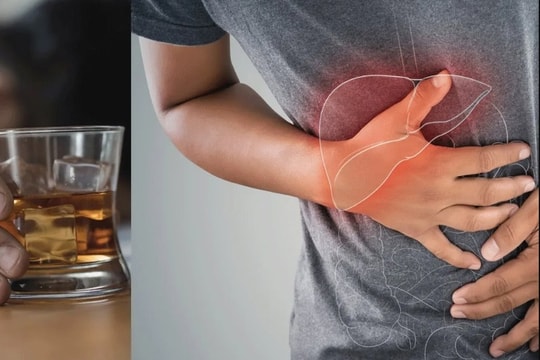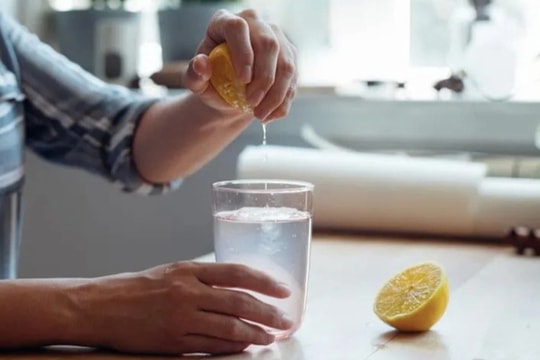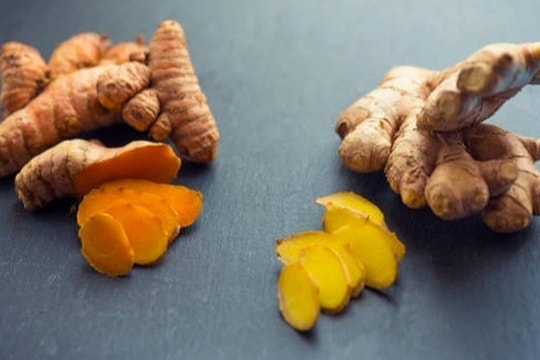What is the best way to detox your body?
The term toxins can refer to pollutants, synthetic chemicals, heavy metals, and processed foods, which can negatively affect your health. So what is the best way to detox your body?
Whole-body detoxification is part of normal organ function, when the body naturally eliminates harmful substances through the kidneys, liver, digestive system, skin, and lungs.
Here are some ways you can optimize your body's natural detoxification system:
Limit alcohol
Your liver metabolizes more than 90% of the alcohol you consume. Liver enzymes convert alcohol into acetaldehyde, a known carcinogen. Recognizing acetaldehyde as a poison, your liver converts it into a harmless substance called acetate, which is excreted from your body.
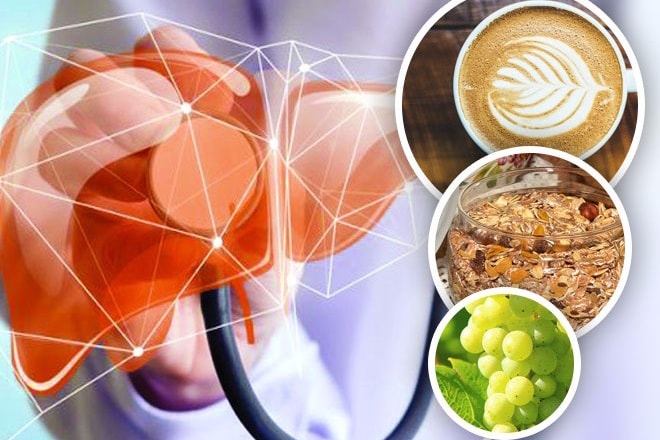
The liver is the body's natural detoxification organ. Photo: Shutter
Drinking too much alcohol can seriously damage your liver by causing fat buildup, inflammation, and scarring. When this happens, the liver can't function properly and perform its essential tasks, including filtering waste and other toxins from the body.
Focus on sleep
Ensuring adequate quality sleep each night is essential to supporting the health of your body and its natural detoxification system. Sleep allows your brain to reorganize and recharge itself, as well as remove the toxic byproducts that build up throughout the day.
One of those waste products is a protein called beta-amyloid, which contributes to Alzheimer's disease. When you're sleep deprived, your body doesn't have time to perform those functions, so toxins can build up and affect a number of aspects of your health.
Poor sleep is linked to short-term and long-term health consequences, such as stress, anxiety, high blood pressure, heart disease, type 2 diabetes, and obesity.
You should sleep regularly for 7 to 9 hours every night to help improve your health.
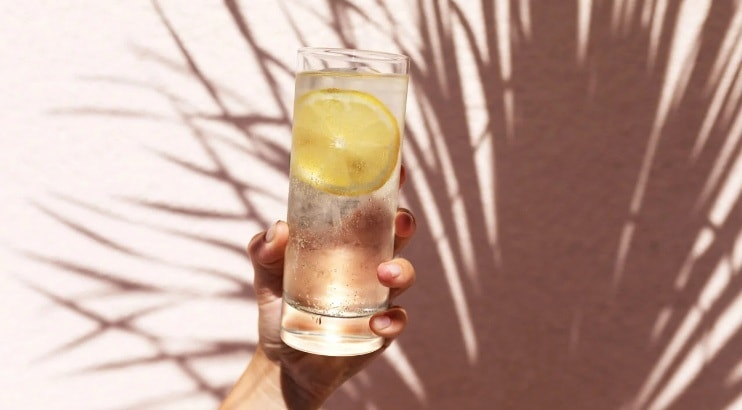
You can support your body's detoxification system by drinking plenty of water. Photo: Getty
Drink more water
Water not only quenches thirst, it regulates body temperature, lubricates joints, aids in digestion and nutrient absorption, and detoxifies the body by removing waste. The cells in the body must constantly repair themselves to function optimally and break down nutrients for the body to use as energy.
However, these processes release waste products in the form of urea and carbon dioxide, which can be harmful if they accumulate in the blood. Water transports these waste products, effectively eliminating them through urination, breathing, or sweating. Therefore, staying hydrated is important for detoxification.
The recommended daily intake of water is 3.7 liters for men and 2.7 liters for women. You may need more or less depending on your diet, where you live, and how active you are.
Reduce sugar and processed food intake
Research links high consumption of sugary and processed foods to obesity and other chronic diseases, such as heart disease, cancer and diabetes.
These diseases hinder the body's natural detoxification ability by damaging vital organs, such as the liver and kidneys.
For example, consuming a lot of sugary drinks can cause fatty liver disease, a condition that negatively affects liver function.
Eat foods rich in antioxidants
Antioxidants protect your cells from damage caused by molecules called free radicals. Oxidative stress is a condition that results from the overproduction of free radicals.
The body naturally produces these molecules for cellular processes, such as digestion. However, alcohol, cigarette smoke, a diet low in nutrients, and exposure to pollutants can create too many free radicals.
These molecules cause damage to many types of cells. Research suggests that free radical damage plays a role in conditions such as dementia, heart disease, liver disease, asthma, and some cancers.
Eating a diet rich in antioxidants can help your body fight oxidative stress caused by excess free radicals and other toxins that increase your risk of disease.
So focus on getting your antioxidants from food, not supplements. Taking too many antioxidant supplements may increase your risk of certain diseases.
Examples of antioxidants include vitamin A, vitamin C, vitamin E, selenium, lycopene, lutein, and zeaxanthin. Berries, fruits, nuts, cocoa, vegetables, spices, and beverages such as coffee and green tea have some of the highest amounts of antioxidants.
Eat foods rich in prebiotics
Gut health is important for maintaining a healthy detoxification system. Gut cells have detoxification and excretion systems that help protect the gut and body from harmful toxins, such as chemicals.
Good gut health starts with prebiotics, a type of fiber that feeds the beneficial bacteria in your gut called probiotics. With prebiotics, the beneficial bacteria can produce nutrients called short-chain fatty acids that are beneficial to health.
Antibiotic use, poor dental hygiene, and poor diet quality can all alter the balance of bacteria in the gut. This unhealthy change in bacteria can therefore weaken the immune and detoxification systems and increase the risk of disease and infection.
Eating foods rich in prebiotics can help keep your immune system and detoxification system healthy. Food sources rich in prebiotics include tomatoes, artichokes, bananas, asparagus, onions, garlic, and oats…
Reduce salt intake
For some people, detoxing is a way to get rid of excess water. Consuming too much salt can cause your body to retain excess water, especially if you have a condition that affects your kidneys or liver or if you don't drink enough water.
Increasing your water intake is one of the best ways to get rid of excess water weight caused by consuming too much salt.
That's because when you consume too much salt and not enough water, your body releases an antidiuretic hormone that prevents you from urinating and thus prevents detoxification.
By increasing your water intake, your body reduces the production of antidiuretic hormone and increases urination, eliminating more water and waste. Increasing your intake of potassium-rich foods, which help balance some of the effects of sodium, can also help. Potassium-rich foods include potatoes, squash, kidney beans, bananas, and spinach.
Stay active
Regular exercise — regardless of body weight — is linked to a longer life and a reduced risk of many conditions and diseases, including type 2 diabetes, heart disease, high blood pressure and some cancers.
While there are several mechanisms behind the health benefits of exercise, reducing inflammation is a key one. By reducing inflammation, exercise can help the body's systems—including the detoxification system—function properly and protect the body from disease.
You should aim for at least 150-300 minutes of moderate-intensity exercise per week, such as brisk walking, or 75-150 minutes of vigorous-intensity physical activity per week, such as running./.

